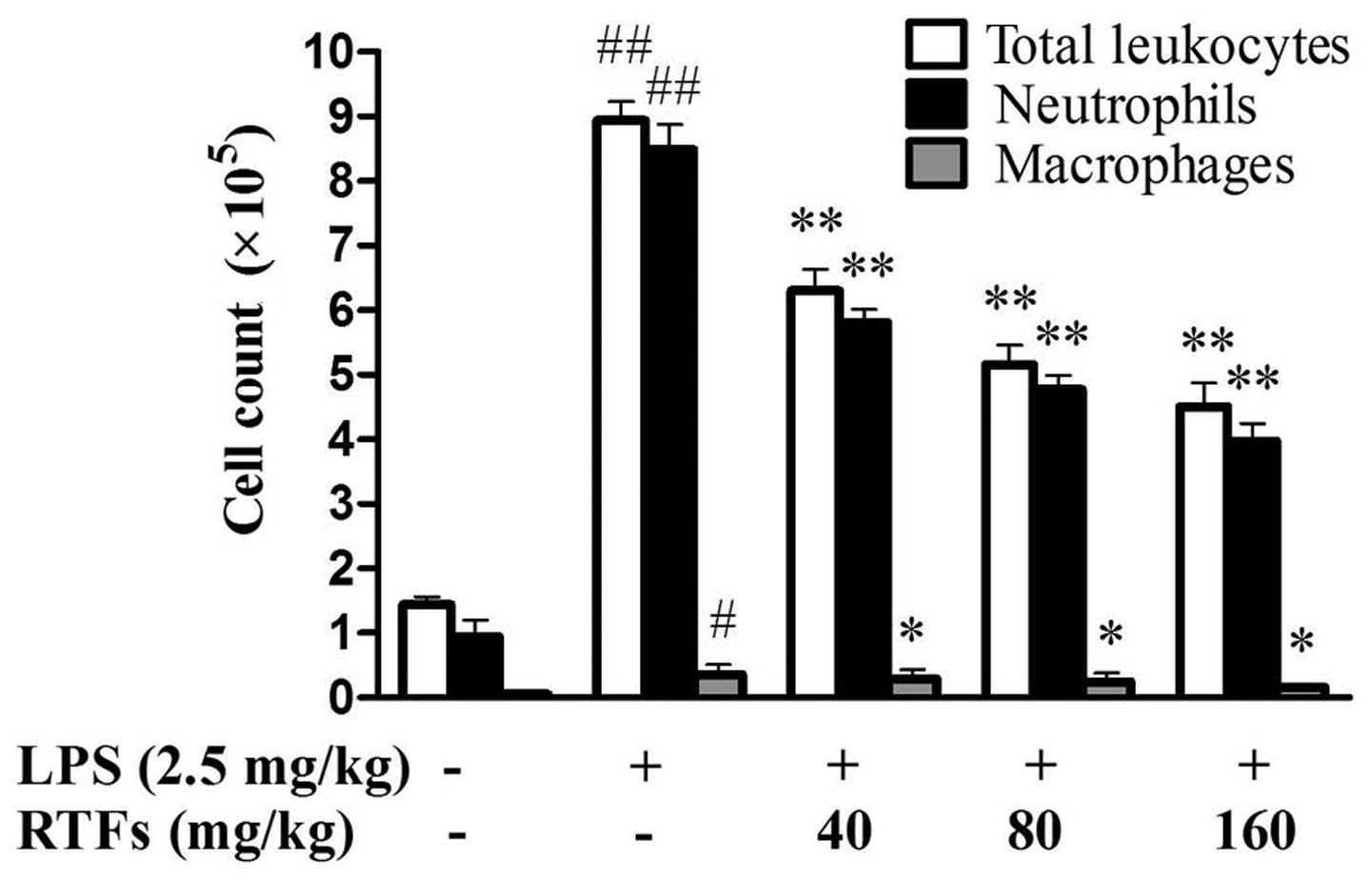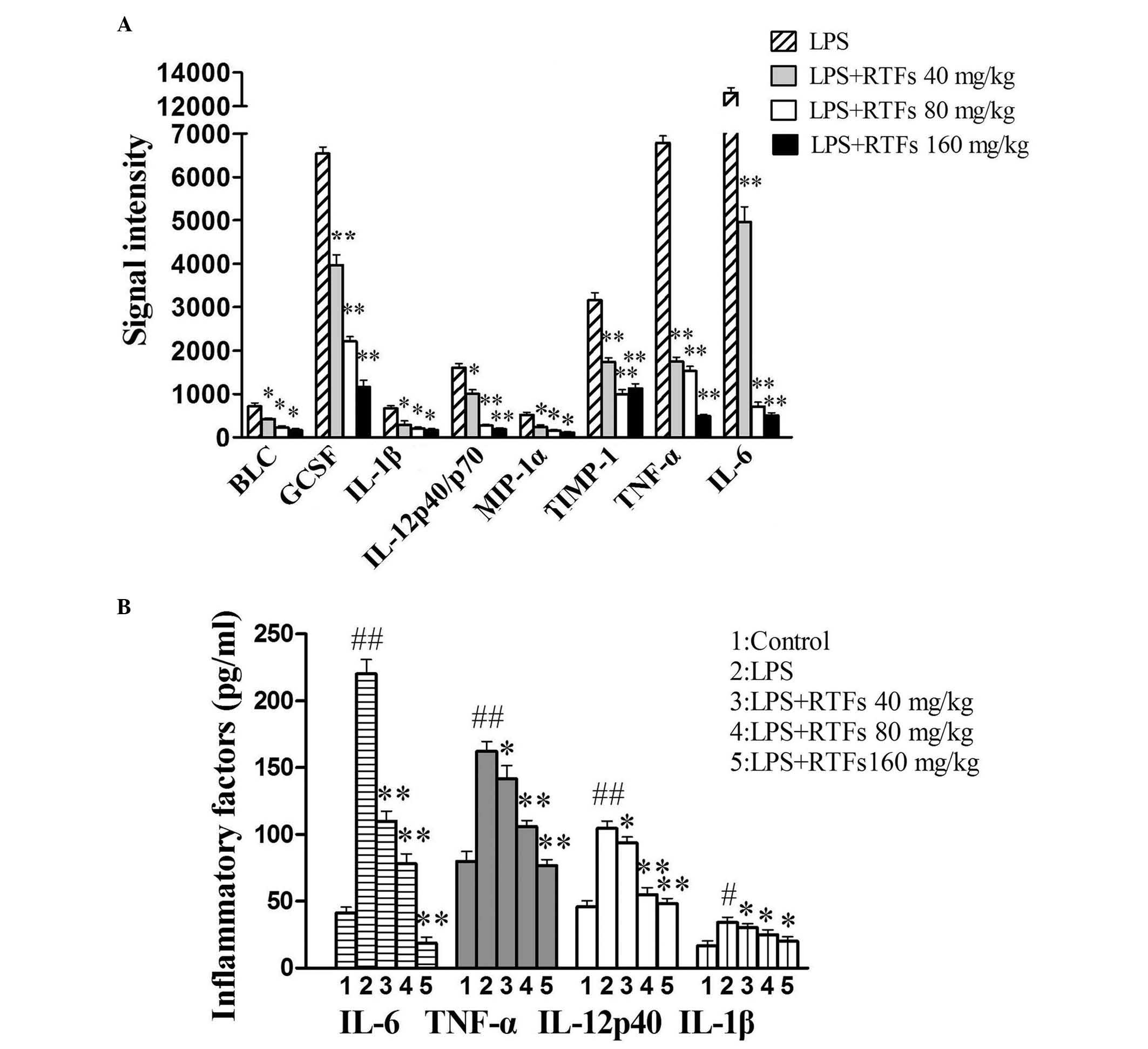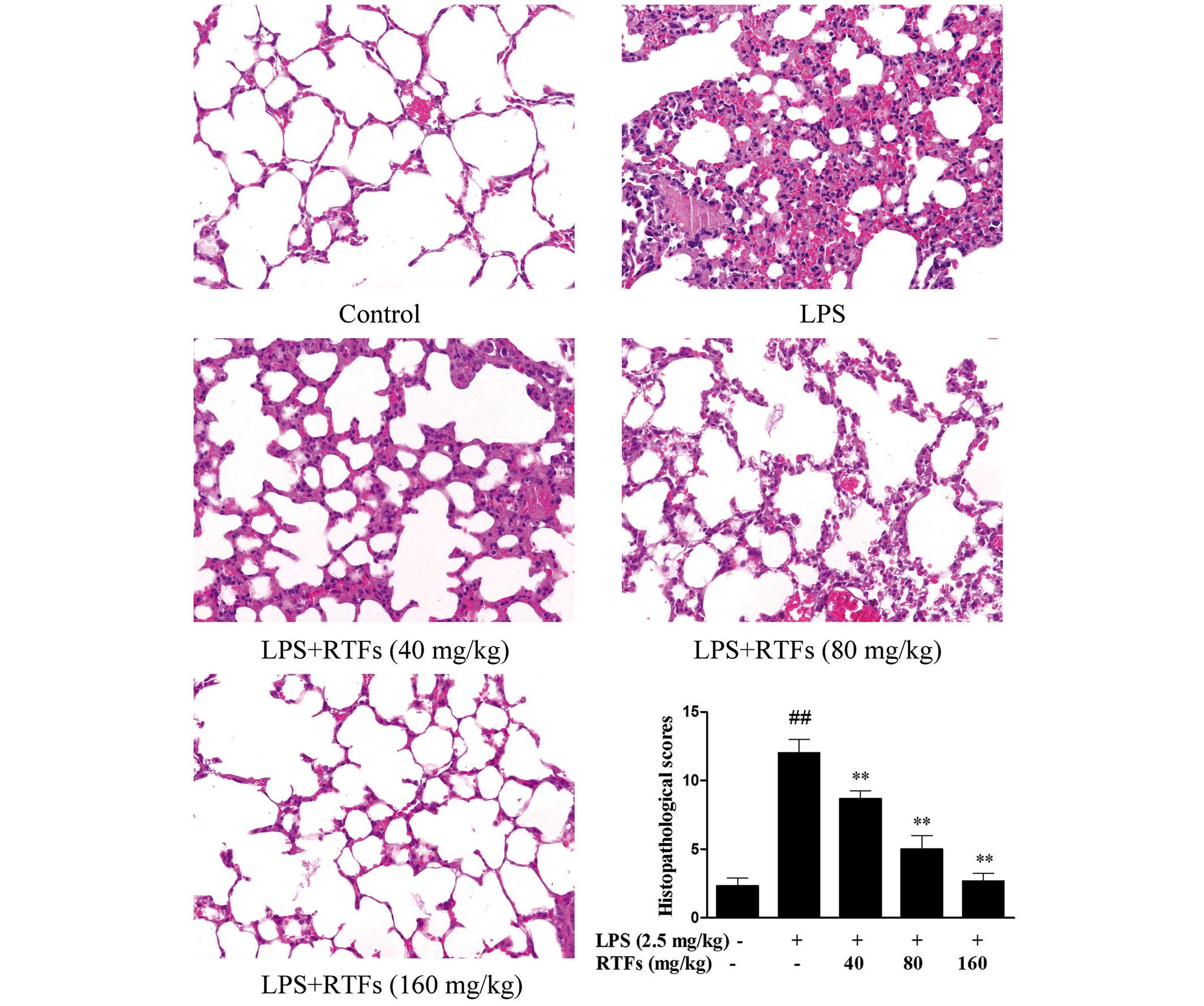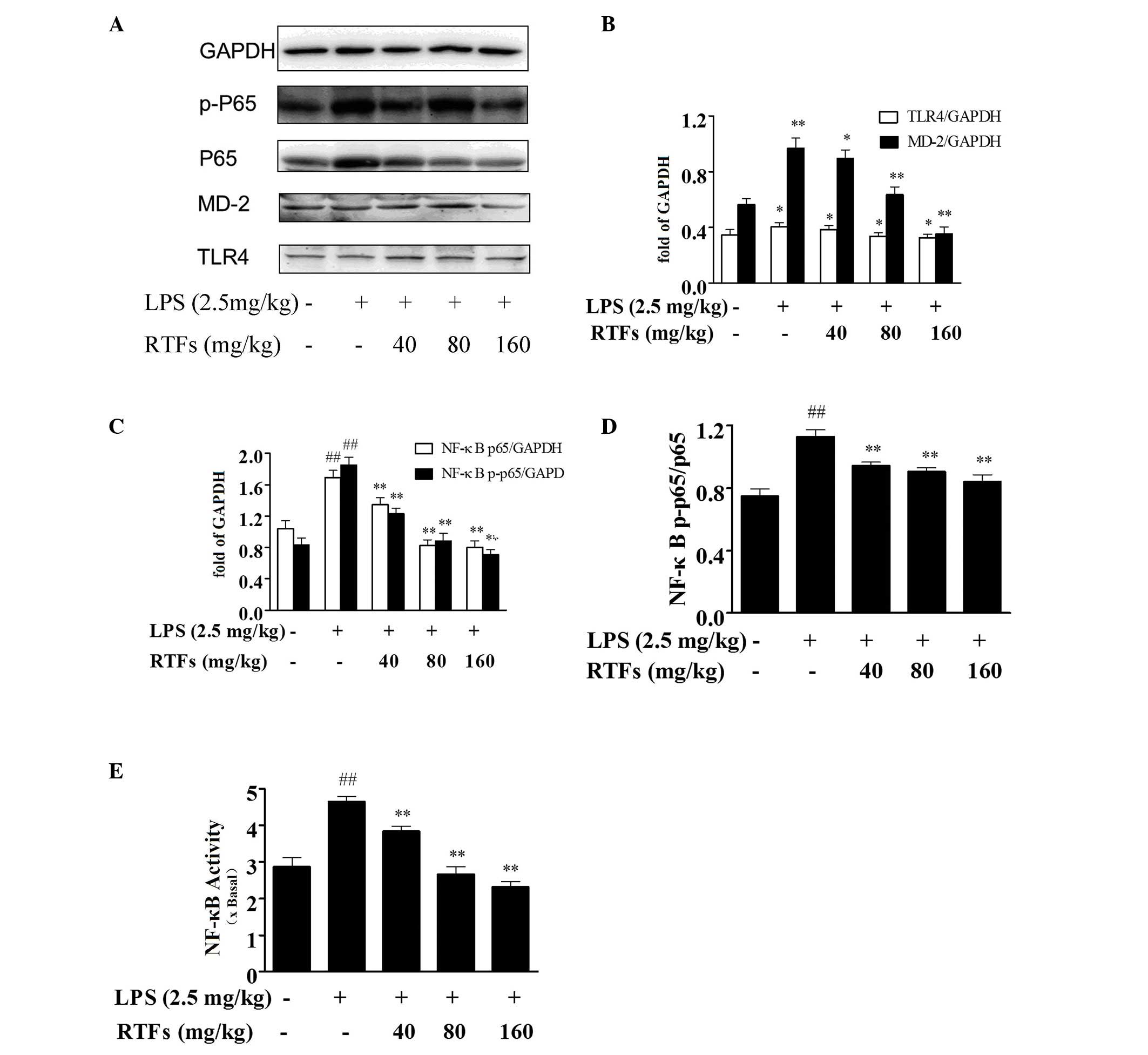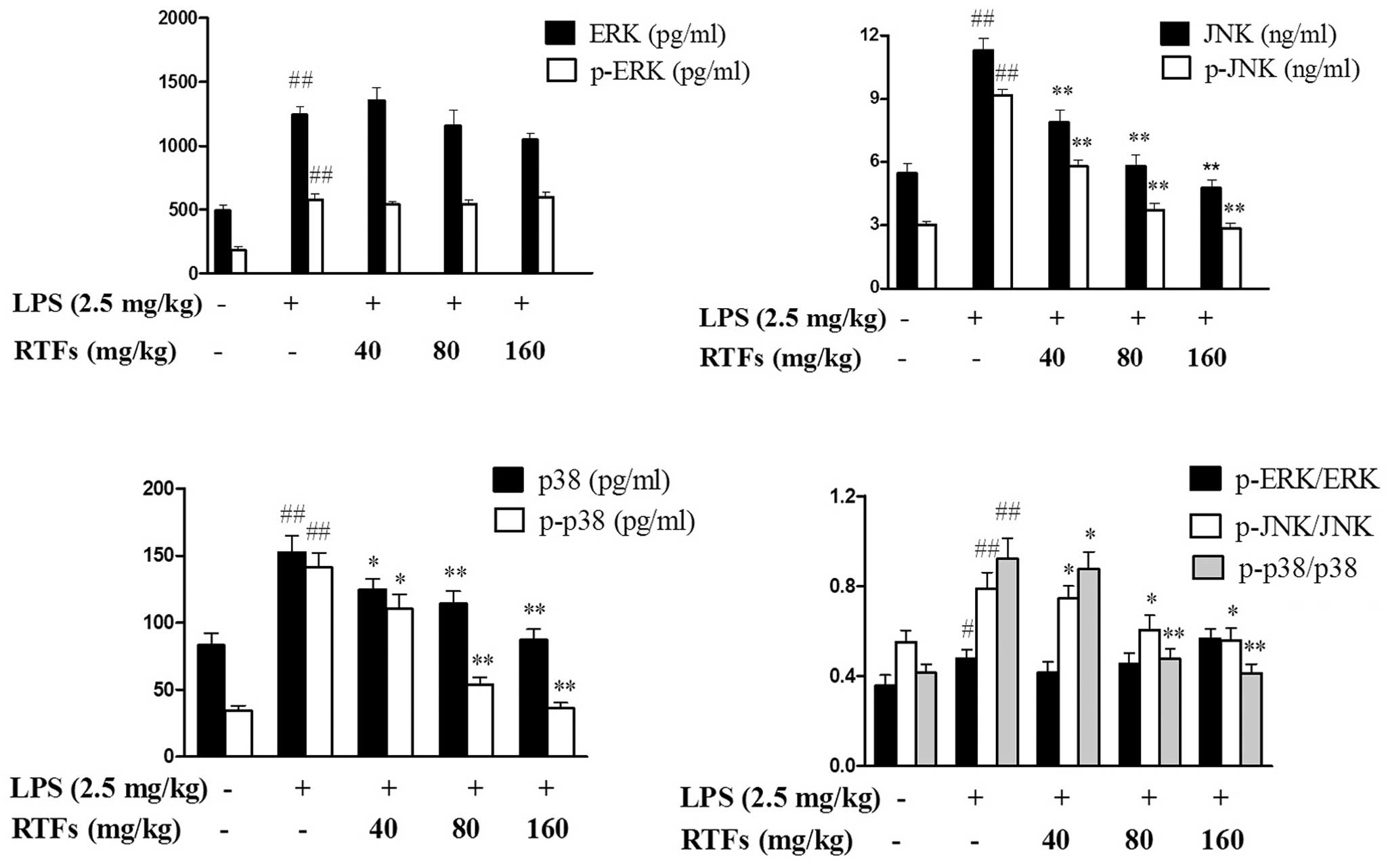|
1
|
Gotts JE and Matthay MA: Treating ARDS:
New hope for a tough problem. Lancet Respir Med. 2:84–85. 2014.
View Article : Google Scholar : PubMed/NCBI
|
|
2
|
Fernandez-Bustamante A and Repine JE:
Chronic inflammatory diseases and the acute respiratory distress
syndrome (ARDS). Curr Pharm Des. 20:1400–1408. 2014. View Article : Google Scholar
|
|
3
|
Ware LB: Autopsy in ARDS: Insights into
natural history. Lancet Respir Med. 1:352–354. 2013. View Article : Google Scholar
|
|
4
|
Thompson BT and Matthay MA: The Berlin
definition of ARDS versus pathological evidence of diffuse alveolar
damage. Am J Respir Crit Care Med. 187:675–677. 2013. View Article : Google Scholar : PubMed/NCBI
|
|
5
|
De Luca D, Piastra M, Tosi F, Pulitanò S,
Mancino A, Genovese O, Pietrini D and Conti G: Pharmacological
therapies for pediatric and neonatal ALI/ARDS: An evidence-based
review. Curr Drug Targets. 13:906–916. 2012. View Article : Google Scholar : PubMed/NCBI
|
|
6
|
Zhu T, Wang DX, Zhang W, Liao XQ, Guan X,
Bo H, Sun JY, Huang NW, He J, Zhang YK, et al: Andrographolide
protects against LPS-induced acute lung injury by inactivation of
NF-κB. PLoS One. 8:e564072013. View Article : Google Scholar
|
|
7
|
Matute-Bello G, Frevert CW and Martin TR:
Animal models of acute lung injury. Am J Physiol Lung Cell Mol
Physiol. 295:L379–L399. 2008. View Article : Google Scholar : PubMed/NCBI
|
|
8
|
Beduschi MG, Guimarães CL, Buss ZS and
Dalmarco EM: Mycophenolate mofetil has potent anti-inflammatory
actions in a mouse model of acute lung injury. Inflammation.
36:729–737. 2013. View Article : Google Scholar : PubMed/NCBI
|
|
9
|
Song DH and Lee JO: Sensing of microbial
molecular patterns by Toll-like receptors. Immunol Rev.
250:216–229. 2012. View Article : Google Scholar : PubMed/NCBI
|
|
10
|
Kim HJ, Lee HS, Chong YH and Kang JL: p38
mitogen-activated protein kinase up-regulates LPS-induced NF-kappaB
activation in the development of lung injury and RAW 264.7
macrophages. Toxicology. 225:36–47. 2006. View Article : Google Scholar : PubMed/NCBI
|
|
11
|
Arndt PG, Young SK, Lieber JG, Fessler MB,
Nick JA and Worthen GS: Inhibition of c-Jun N-terminal kinase
limits lipopolysaccharide-induced pulmonary neutrophil influx. Am J
Respir Crit Care Med. 171:978–986. 2005. View Article : Google Scholar : PubMed/NCBI
|
|
12
|
Xiao M, Zhu T, Wang T and Wen FQ:
Hydrogen-rich saline reduces airway remodeling via inactivation of
NF-κB in a murine model of asthma. Eur Rev Med Pharmacol Sci.
17:1033–1043. 2013.PubMed/NCBI
|
|
13
|
Zhu T, Zhang W, Xiao M, Chen H and Jin H:
Protective role of andrographolide in bleomycin-induced pulmonary
fibrosis in mice. Int J Mol Sci. 14:23581–23596. 2013. View Article : Google Scholar : PubMed/NCBI
|
|
14
|
Wang X, Zhang L, Duan W, Liu B, Gong P,
Ding Y and Wu X: Anti-inflammatory effects of triptolide by
inhibiting the NF-κB signalling pathway in LPS-induced acute lung
injury in a murine model. Mol Med Rep. 10:447–452. 2014.PubMed/NCBI
|
|
15
|
Jin LY, Li CF, Zhu GF, Wu CT, Wang J and
Yan SF: Effect of siRNA against NF-κB on sepsis-induced acute lung
injury in a mouse model. Mol Med Rep. 10:631–637. 2014.PubMed/NCBI
|
|
16
|
Smyth K, Garcia K, Sun Z, Tuo W and Xiao
Z: TLR agonists are highly effective at eliciting functional memory
CTLs of effector memory phenotype in peptide immunization. Int
Immunopharmacol. 15:67–72. 2013. View Article : Google Scholar :
|
|
17
|
Chen LY and Guo SH: Progress in studies of
chemical composition and pharmacological effects of Tetrastigmatis
Hems Leyani. Zhejiang Zhong Yi Xue Yuan Xue Bao. 12:1368–1370.
2012.
|
|
18
|
Feng Z, Hao W, Lin X, Fan D and Zhou J:
Antitumor activity of total flavonoids from Tetrastigma hemsleyanum
Diels et Gilg is associated with the inhibition of regulatory T
cells in mice. Onco Targets Ther. 7:947–956. 2014.PubMed/NCBI
|
|
19
|
Ma D, Li W, Ma Z, et al: Anti-liver damage
activity analysis of polysaccharide in Radix Tetrastigmatis
Hemsleyani. J Med Res. 41:33–36. 2012.
|
|
20
|
Liu B, Yang J, Ma Y, Yuan E and Chen C:
Antioxidant and angiotensin converting enzyme (ACE) inhibitory
activities of ethanol extract and pure flavonoids from Adinandra
nitida leaves. Pharm Biol. 48:1432–1438. 2010. View Article : Google Scholar : PubMed/NCBI
|
|
21
|
Chen L, Ding L, Yu A, Yang R, Wang X, Li
J, Jin H and Zhang H: Continuous determination of total flavonoids
in Platycladus orientalis (L.) Franco by dynamic microwave-assisted
extraction coupled with on-line derivatization and
ultraviolet-visible detection. Anal Chim Acta. 596:164–170. 2007.
View Article : Google Scholar : PubMed/NCBI
|
|
22
|
Guo L, Li WJ, Xu MJ and Wang X: A mouse
model of acute lung inflammation induced by lipopolysaccharide
inhalation. Beijing Da Xue Xue Bao. 41:226–229. 2009.In Chinese.
PubMed/NCBI
|
|
23
|
Chiu CJ, McArdle AH, Brown R, Scott HJ and
Gurd FN: Intestinal mucosal lesion in low-flow states. I. A
morphological, hemodynamic and metabolic reappraisal. Arch Surg.
101:478–483. 1970. View Article : Google Scholar : PubMed/NCBI
|
|
24
|
Huang Z, Mao Q and Wei J: Evaluation of
anti-inflammatory, analgesic and antipyretic actions for the
extracts from Radix Tetrastigmae. Chinese Journal of New Drugs.
14:861–864. 2005.
|
|
25
|
Zhou X, Dai Q and Huang X: Neutrophils in
acute lung injury. Front Biosci (Landmark Ed). 17:2278–2283. 2012.
View Article : Google Scholar
|
|
26
|
Liu D, Cao G, Han L, Ye Y, SiMa Y and Ge
W: Flavonoids from Radix Tetrastigmae inhibit TLR4/MD-2 mediated
JNK and NF-κB pathway with anti-inflammatory properties. Cytokine.
84:29–36. 2016. View Article : Google Scholar : PubMed/NCBI
|
|
27
|
Zhang H, Neuhöfer P, Song L, Rabe B,
Lesina M, Kurkowski MU, Treiber M, Wartmann T, Regnér S, Thorlacius
H, et al: IL-6 trans-signaling promotes pancreatitis-associated
lung injury and lethality. J Clin Invest. 123:1019–1031. 2013.
View Article : Google Scholar : PubMed/NCBI
|
|
28
|
Gioannini TL, Teghanemt A, Zhang D,
Coussens NP, Dockstader W, Ramaswamy S and Weiss JP: Isolation of
an endotoxin-MD-2 complex that produces Toll-like receptor
4-dependent cell activation at picomolar concentrations. Proc Natl
Acad Sci USA. 101:4186–4191. 2004. View Article : Google Scholar : PubMed/NCBI
|
|
29
|
Baker RG, Hayden MS and Ghosh S: NF-κB,
inflammation, and metabolic disease. Cell Metab. 13:11–22. 2011.
View Article : Google Scholar : PubMed/NCBI
|
|
30
|
Theoharides TC, Kempuraj D, Tagen M, Conti
P and Kalogeromitros D: Differential release of mast cell mediators
and the pathogenesis of inflammation. Immunol Rev. 217:65–78. 2007.
View Article : Google Scholar : PubMed/NCBI
|
|
31
|
Wolfs TG, Dunn-Siegrist I, van't Veer C,
Hodin CM, Germeraad WT, van Zoelen MA, van Suylen RJ,
Peutz-Kootstra CJ, Elson G, Pugin J and Buurman WA: Increased
release of sMD-2 during human endotoxemia and sepsis: A role for
endothelial cells. Mol Immunol. 45:3268–3277. 2008. View Article : Google Scholar : PubMed/NCBI
|
|
32
|
Schnabl B, Brandl K, Fink M, Gross P,
Taura K, Gäbele E, Hellerbrand C and Falk W: A TLR4/MD2 fusion
protein inhibits LPS-induced pro-inflammatory signaling in hepatic
stellate cells. Biochem Biophys Res Commun. 375:210–214. 2008.
View Article : Google Scholar : PubMed/NCBI
|
|
33
|
Zhang J, Kumar A, Wheater M and Yu FS:
Lack of MD-2 expression in human corneal epithelial cells is an
underlying mechanism of lipopolysaccharide (LPS) unresponsiveness.
Immunol Cell Biol. 87:141–148. 2009. View Article : Google Scholar
|
|
34
|
Akira S, Uematsu S and Takeuchi O:
Pathogen recognition and innate immunity. Cell. 124:783–801. 2006.
View Article : Google Scholar : PubMed/NCBI
|
|
35
|
Xie G, Chen N, Soromou LW, Liu F, Xiong Y,
Wu Q, Li H, Feng H and Liu G: p-Cymene protects mice against
lipopolysaccharide-induced acute lung injury by inhibiting
inflammatory cell activation. Molecules. 17:8159–8173. 2012.
View Article : Google Scholar : PubMed/NCBI
|
|
36
|
Ling M, Li Y, Xu Y, Pang Y, Shen L, Jiang
R, Zhao Y, Yang X, Zhang J, Zhou J, et al: Regulation of miRNA-21
by reactive oxygen species-activated ERK/NF-κB in arsenite-induced
cell transformation. Free Radic Biol Med. 52:1508–1518. 2012.
View Article : Google Scholar : PubMed/NCBI
|
|
37
|
Han DW, Lee MH, Kim HH, Hyon SH and Park
JC: Epigallocatechin-3-gallate regulates cell growth, cell cycle
and phosphorylated nuclear factor-κB in human dermal fibroblasts.
Acta Pharmacol Sin. 32:637–646. 2011. View Article : Google Scholar : PubMed/NCBI
|
|
38
|
Johnson GL and Lapadat R:
Mitogen-activated protein kinase pathways mediated by ERK, JNK, and
p38 protein kinases. Science. 298:1911–1912. 2002. View Article : Google Scholar : PubMed/NCBI
|
|
39
|
Dai JN, Zong Y, Zhong LM, Li YM, Zhang W,
Bian LG, Ai QL, Liu YD, Sun J and Lu D: Gastrodin inhibits
expression of inducible NO synthase, cyclooxygenase-2 and
proinflammatory cytokines in cultured LPS-stimulated microglia via
MAPK pathways. PloS One. 6:e218912011. View Article : Google Scholar : PubMed/NCBI
|
|
40
|
Liu HT, Huang P, Ma P, Liu QS, Yu C and Du
YG: Chitosan oligosaccharides suppress LPS-induced IL-8 expression
in human umbilical vein endothelial cells through blockade of p38
and Akt protein kinases. Acta Pharmacol Sin. 32:478–486. 2011.
View Article : Google Scholar : PubMed/NCBI
|
|
41
|
Liu C, Zhang X, Zhou JX, Wei W, Liu DH, Ke
P, Zhang GF, Cai GJ and Su DF: The protective action of ketanserin
against lipopolysaccharide-induced shock in mice is mediated by
inhibiting inducible NO synthase expression via the MEK/ERK
pathway. Free Radic Biol Med. 65:658–666. 2013. View Article : Google Scholar : PubMed/NCBI
|
|
42
|
Choi Y, Lee MK, Lim SY, Sung SH and Kim
YC: Inhibition of inducible NO synthase, cyclooxygenase-2 and
interleukin-1beta by torilin is mediated by mitogen-activated
protein kinases in microglial BV2 cells. Br J Pharmacol.
156:933–940. 2009. View Article : Google Scholar : PubMed/NCBI
|
|
43
|
Xu X, Yin P, Wan C, Chong X, Liu M, Cheng
P, Chen J, Liu F and Xu J: Punicalagin inhibits inflammation in
LPS-induced RAW264.7 macrophages via the suppression of
TLR4-mediated MAPKs and NF-κB activation. Inflammation. 37:956–965.
2014. View Article : Google Scholar : PubMed/NCBI
|















